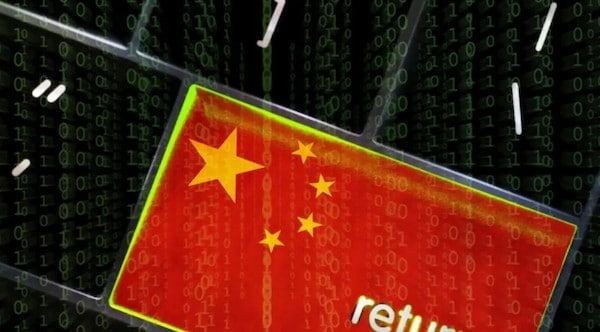In recent weeks movements in different countries have toppled statues and put the police and other institutions upholding systemic racism on the defensive. Yet, amidst unprecedented protests against racism, there has been remarkably little interest in the white supremacist foreign policy alliance currently driving conflict with China. The “Five Eyes” intelligence alliance has faced almost no criticism for propelling the Canada-China hostage standoff.
The seven-decade old Five Eyes alliance—including Canada, the United Kingdom, New Zealand, Australia and the United States—has been central to Washington’s anti-China push. To counter China, the component countries recently announced plans to coordinate the production of strategic goods and collectively denounced Beijing’s policy in Hong Kong. More significantly, they have sought to weaken the “Crown Jewel of China Inc.”—the multinational tech giant Huawei.
Canada’s arrest of Huawei’s chief financial officer Meng Wanzhou in December 2018 was part of the alliance’s campaign to curtail the rise of the world’s largest 5G network provider. Five months before Meng’s arrest at the Vancouver airport, the Wall Street Journal reported that Five Eyes officials agreed in Ottawa to contain the company’s global growth. Washington claimed that China’s first global technology powerhouse posed a security risk, but driving the campaign was a bid to halt China’s ascendance in this critical industrial sector.
Of course, intelligence agencies in the U.S., Australia, New Zealand, the UK and Canada were also worried about the rising dominance of a firm less willing to follow their directives. In fact, the Five Eyes sought what they accused Huawei and China of. In September 2018, the intelligence alliance requested communication providers build “back doors” in their systems, allowing the Five Eyes espionage agencies full access to communications. The Australian government actually published a statement, which was later removed, stating that “technical, legislative, coercive or other measures” should be considered to implement these “back doors”. The campaign to paint Huawei as a privacy violator was the racist pot calling the kettle black.
The Five Eyes partnership oozes of white supremacy. Settler colonialism and empire unite an alliance that excludes wealthier non-white nations (Japan and South Korea) or those with more English speakers (India and Nigeria). It is not a coincidence that the only four countries (Canada, Australia, New Zealand and the U.S.) that originally voted against the United Nations Declaration on the Rights of Indigenous Peoples (UNDRIP) in 2007 are part of the Five Eyes.
While claiming to be anti-racist, the Liberals promoted what John Price called “a race-based spy network”. Their 2017 defence policy, Strong, Secure, Engaged, noted, “building on our shared values and long history of operational cooperation, the Five Eyes network of partners, including Canada, the United States, United Kingdom, Australia and New Zealand, is central to protecting Canada’s interests and contributes directly to operational success.” In a rare move, the following year Trudeau revealed a meeting with his Five Eyes counterparts. After the April 2018 gathering in London, the prime minister labelled the 2,000-employee Communications Security Establishment (CSE), Canada’s main contributor to the Five Eyes arrangement, “an extraordinary institution.” Alongside praise, the government expanded CSE’s powers and funding in recent years.
Last week, Five Eyes defence ministers held two days of video meetings. Despite unprecedented public opposition to racism and significant attention focused on the hostage conflict with China, there has been little criticism of the Five Eyes and its actions within the mainstream press.
It is time Canadians debate whether they want to be part of an alliance of intelligence agencies promoting conflict with China.
Overcoming structural racism should not be limited to what goes on inside Canada. We must confront racism wherever it is found, including in our international alliances.

